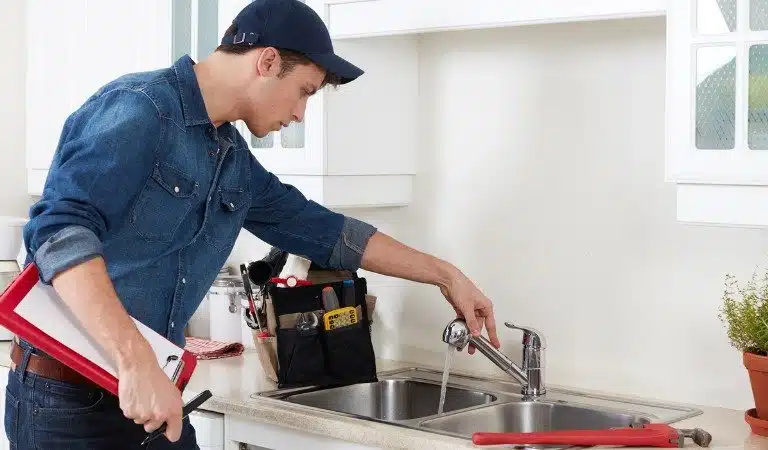Your plumbing system will require regular maintenance, just like any other product in your home, no matter how big or small. A routine plumbing inspection will help you avoid unexpected plumbing problems or at least reduce the risk of an emergency.
It’s fine if you don’t know why plumbing inspections matter or are already considering getting one but are unsure where to begin. This article will cover the following:
- Why you should have regular plumbing inspections
- What to expect during a plumbing inspection
- How to arrange a plumbing inspection
Why Should You Get A Plumbing Inspection?
A plumbing inspection is not something you would normally prioritize on your list of home maintenance tasks, but having a plumber inspect your system regularly can save you money, time, and stress over the long term. It is better to find a problem during an inspection than to come home to a flooded cellar or to turn on the shower and discover that your water heater doesn’t work.
Routine plumbing inspections can reveal potential problems that can be resolved before they become a disaster.
Plumbing problems can go unnoticed until they become a major problems. Plumbers can help with emergencies but also maintain your pipes, fixtures, and faucets to ensure their health and efficiency. Consult a professional plumber if you are experiencing any of the following symptoms:
- Faucets not working as they should
- Water bills increase dramatically
- The hot water doesn’t last as long as before
What Is Included In A Plumbing Inspection?
A plumbing inspection involves thoroughly examining all the components in your plumbing system. Your plumber should inspect the following:
- Faucets
- Toilets
- Showers and tubs
- Supply Lines
- Drainage
- Piping
- Garbage disposal units and lines
- Dishwasher
- Water heater
- Hoses and lines for washing machines
Any component that touches or drains any water should be checked. The plumbing technician will inspect the components for leaks, drainage issues, cracks, and clogs. Your plumber may drain and flush out your water heater.
You Can Hire A Plumber To Perform A Plumbing Inspection.
Choosing a reputable, knowledgeable company when choosing a plumbing service is essential. Ask for a plumbing inspection or sign up for their maintenance plan if you are contacting one of the Best Pick plumbing companies. Plumbing companies often offer service contracts or membership plans, including annual plumbing inspections.
When the technician arrives at your home, tell him about any problems you have noticed. Give them time and space to complete their work. Save any questions regarding the proper maintenance of your plumbing system until the end.
What To Do After Your Plumbing Inspection
The technician will give you a summary after the inspection. This may include a list of any leaks they found and fixed immediately or recommend a new water heating system due to its age and inefficiency. Ask your plumber about the urgency of any problems and discuss repair and replacement options. Ask questions. These technicians are professionals and are available to assist.
Be prepared to set up a return appointment for the technician if any significant issues are found. You will want to know whether the repair or replacement needs to be done tomorrow or in several weeks or months.
The plumbing system inspection can be helpful even if it does not reveal any significant issues. It will help you determine when to upgrade specific plumbing equipment, like your hot water heater and toilet. The latest advances in plumbing technology may save you money. Installing new showerheads and faucets can make a difference. Low-flow fixtures can be an excellent upgrade for environmentally conscious homeowners. Ask your plumber for the latest energy-efficient options.
Even though you have had a plumbing checkup, there could be other issues before your next plumbing inspection. Most importantly, make sure you keep up with your routine plumbing maintenance. Have your plumber inspect your system at least once per year.

